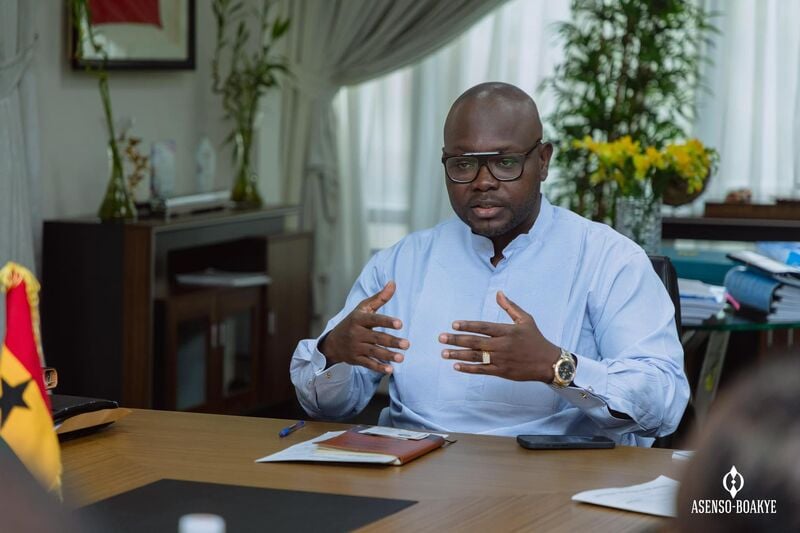The renaming of public universities, initiated by the Akufo-Addo administration, has sparked a contentious debate in Ghana, with the current NDC government under President Mahama proposing a reversal of the policy. Francis Asenso-Boakye, the Member of Parliament for Bantama, strongly criticizes this proposed reversal, arguing that it disrespects the distinguished Ghanaians whose names were bestowed upon these institutions. He emphasizes that the renaming was intended to honor individuals who made undeniable contributions to Ghana’s development and progress, and to erase this recognition would be a dangerous act of historical revisionism. Asenso-Boakye views the NDC’s move as petty partisan politics, driven by a desperate attempt to dismantle the legacy of the former NPP government rather than prioritizing the needs of the nation.
Asenso-Boakye’s argument centers on the significance of recognizing and honoring individuals who have made significant contributions to Ghana’s development. He contends that the renaming of universities was not a capricious act but a deliberate effort to acknowledge the legacies of these prominent figures. By associating these institutions with their names, the Akufo-Addo government sought to inspire future generations and instill a sense of national pride. Reverting this decision, in his view, diminishes the importance of these contributions and sends a message that national heroes can be easily forgotten. He also sees the move as politically motivated, driven by the NDC’s desire to erase any trace of the NPP’s influence, even if it means undermining the symbolic recognition of national figures.
The proposed reversal, according to Asenso-Boakye, represents a misplaced focus on symbolic gestures rather than addressing the pressing issues facing the Ghanaian people. He argues that the current government should prioritize creating jobs, improving the education system, and developing infrastructure, as these are the areas where Ghanaians expect to see tangible progress. Engaging in symbolic political battles over university names distracts from these crucial priorities and ultimately serves no constructive purpose. He contends that the NDC’s actions demonstrate a disregard for the real needs of the citizenry, opting instead for politically motivated actions that offer no tangible benefits.
The crux of the disagreement lies in the differing perspectives on the purpose and significance of naming public institutions. While the NPP viewed the renaming as a way to honor notable individuals and inspire future generations, the NDC sees it as an unnecessary and potentially divisive action. The NDC argues that the original names of the universities held their own significance and should not be lightly discarded. Furthermore, they contend that the renaming process lacked broad consultation and may have been influenced by political considerations. This difference in perspective highlights the ongoing tension between the two major political parties and their contrasting approaches to governance.
The debate over university names reflects broader political and societal discussions about historical memory, national identity, and the role of symbolism in public life. The act of naming or renaming institutions carries significant symbolic weight, as it reflects the values and priorities of a society. In this case, the controversy underscores the importance of carefully considering the implications of such decisions and ensuring that they serve the broader interests of the nation. The competing narratives surrounding the renaming of universities reveal deeper divisions within Ghanaian society, raising questions about who gets to decide whose history is remembered and celebrated.
The dispute also highlights the challenges faced by newly elected governments when dealing with the legacy of their predecessors. While it is common for new administrations to seek to differentiate themselves from previous regimes, the decision to reverse symbolic gestures like the renaming of universities can be perceived as petty and divisive. Focusing on collaborative efforts to address the needs of the nation, rather than engaging in symbolic battles, is crucial for fostering unity and progress. Ultimately, the debate surrounding the renaming of universities serves as a microcosm of the larger political landscape in Ghana, reflecting the ongoing struggles for power, recognition, and the shaping of national identity.


